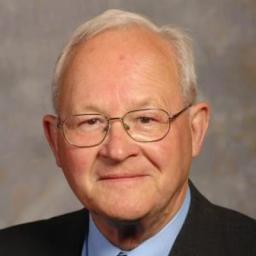The expert witness as seen by the Supreme Court

By Alec Samuels
The judgment in Kennedy v Cordia is a welcome reminder of the duty of the expert to assist the court and of the limits on their role, writes Alec Samuels
The Supreme Court has considered the role of the expert witness in litigation in Kennedy v Cordia (Services) LLP [2016] UKSC 6. The case comes from Scotland and the judgment was given by the two Scottish judges, but the principles also apply in England and the three English judges agreed with the judgment.
There appears to be no change in the law, much of which is now to be found in the rules of procedure. However, the clear authoritative statements of principle are a salutary reminder.
The expert evidence must assist the court and it must be ‘necessary’. We live in times of austerity, therefore costs must be kept to a minimum. The lay judge and the lay members of the jury need that expert evidence in order to be able to make an informed and sound judgement. What happened cannot be fully understood without expert assistance: the information needed lies beyond the ordinary experience of the ordinary person, even a judge.
The science, the physics, the chemistry, the technology, the engineering, the medicine, the sociology, the psychiatry – all need exposition, clarification, and simplification. The nature of the injuries and their remedies need a doctor to make them intelligible. The nature and effects of drugs in the particular case are beyond the experience of the decision-makers. The assessment of the risks in the operation or activity needs considerable expertise, as health and safety standards have become very intricate.
Knowledge normally derives directly from the study and experience of the expert, but they may properly rely upon team research and experience, and upon reputable general professional knowledge such as is found in the literature, and may collate all the relevant expert knowledge available for the purpose of the particular case. Anecdote will never suffice.
Usually there is a reliable body of knowledge and experience available upon which the expert can draw. If the area of expertise is very specialised and modern, even innovative, then a particular skill or methodology may be needed to persuade the decision-maker in the case.
All the material upon which the expert has worked should be provided to the other side if it is not otherwise available to them.
The expert must state the facts they were working on, any assumptions made, and the premiss upon which they were acting. Then they must disclose the surveys, measurements, testings, analyses, and reasons supporting their conclusions. The unsubstantiated or unsupported opinion will carry no weight.
If the expert thinks that insufficient or inappropriate material is supplied, then they should request what they need or seek clarification. If need be they can always go to the judge for an order.
So far as possible the experts from the two sides should agree a statement of the facts upon which they are working, an agreed statement of opinion, and finally an agreed statement of the issues upon which they do not and cannot agree, so that the issues in the case are clearly identified. Economy in litigation is the current phrase.
Even if the experts do agree or an expert report is not challenged by the other side, the judge must make sure that it is nonetheless admissible and persuasive.
The expert must have all the qualities expected: independent, impartial, unbiased, objective, uninfluenced by the interests of the instructing party, honest, truthful, and professional. They should not stray outside their expertise. They should be flexible, and never shrink from changing their mind and acknowledging this. The inflexible, obstinate expert witness runs the risk of destruction in the witness box.
The expert must not intentionally or inadvertently usurp the functions of the decision-maker: the judge, or the jury in a criminal case. They give facts and opinions, but limited to their expertise. They can explain scientifically what appears to have happened, they can explain scientific cause and effect, but they cannot say whether conduct was or was not negligence, or a breach of contract, or carried any other legal consequence.
The duty of the lawyers in the case is to determine whether expert evidence is necessary and, if so, who to instruct for the purpose. All relevant evidence should be given to the expert, including material which may be adverse to the case for the client. Then the report must be assessed for admissibility and relevance and quality.
A preliminary hearing may or may not take place; it probably will in any case of significance. Examples given by the justices included clinical negligence, catastrophic personal injuries, commercial cases, and intellectual property cases – in other words, big or complicated cases.
Admissibility and relevance usually become apparent at an early stage; quality may not emerge until the trial itself and cross-examination.
 Alec Samuels is a barrister and former reader at Southampton University
Alec Samuels is a barrister and former reader at Southampton University

